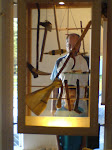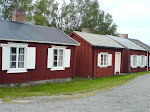Thank you!! He seems to be an interesting man.
She also linked to an essay about him; “Our contempt for weakness” (this essay is only in Swedish, “Vårt förakt för svaghet”).
Ofstad wrote several books, one of them with the heading above, about Hitler and Nazi-Germany. I think this is on the same theme as the previous blogpost (Arthur Silber’s essays), but Ofstad never writes about childhood and upbringing though.
I also found a readers’ letter on Miller’s web today “The Hidden Key” see later in this blogpost about it and a link to it there (And see this letter to Miller today about “Genital examination of girls”).
In the essay about Ofstad and his book it stood that Ofstad had pointed out that the most essential trait in the Nazism is that the strong shall rule over the weak and that the weak is worth contempt, since he allow himself to be controlled/ruled over. The core is contempt for weakness. A contempt that expresses feelings of disgust and loathing at everything that is weak, sick or suffering from defeat.
The head source in Ofstad’s investigation is Hitler’s “Mein Kampf” and “kampf”, the Swedish “kamp” and the English “struggle” (“My Struggle” according to Wikipedia) is an essential motive in the Nazi ideology, besides the concept-pair strong-weak. The existence was seen as a struggle. And all stately activity had as task to increase the ability to fight, so this fight would lead to victory and thus prove Germany’s right to rule over all other states and races!
This implied a risk though: if the nation proved to be inferior in a trial of strength this would with logical necessity mean that it was worth contempt.
Hitler leant on Charles Darwin’s findings? Which claimed that it is a fight between strong and weak going on in the existence, and Hitler concluded from this that the struggle for the survival of the strong should go on. Hitler was worried over the principle about the struggle for survival was put out of stake. The serious with this according to Hitler’s feelings was that the human-species was about to be destroyed!!! My interpretation: Not enough strong or hard?? Weakened? Degenerated?? Therefore it was a negative view towards social-help (in form of money?), social insurances of different kinds, help to pensioners, invalids and other disabled, all these who could be seen as weak in the society’s eyes under Hitler!!
Hitler criticized democracy for leading to irresponsibility. In the place of democracy he wanted to put the leader, and the leader didn’t have to be elected by the people, he is chosen by his superior abilities to lead. The leader’s will is always right, as he is said to represent the people’s real will (as they don’t know – yet??).
One only obeyed orders and the leader wasn’t responsible for anyone.
In this there was a built in conflict: the Germans, the Aries, is the elite, but the outcome of the fight or struggle is the decisive proof of the order of rang. The ones that are the victorious are the elite. “This consequence, that power is right, can have fuelled the actions: only if I was victorious I had the right to fight as I did, and coarsening: to justify my brutality I resort to more and worse brutality to force the victory forward (for myself) that is the only that can justify my actions/acting.”
The species that is ruling over other species is the one that shall rule! The criteria of power and strength are that one which in fact is ruling and which manages to rule! When the luck in war turned these principles of course came in conflict with each others. Therefore Hitler had to commit suicide???
Do we see this today too? But milder? Or more hidden? On all different levels: prestige here and there, in all different relations?? On a personal level as on national levels? Who is the strongest??
In the readers’ letter on Millers we. “The Hidden Key”, the writer wrote:
“In the Americans (illegal) invasion of Iraq in 2003,the term for the (air) assault on Baghdad was called ‘Shock and Awe’.
Last night while I was considering this, I realized that this idea of being both SHOCKED and AWED by extreme violence, (from above), is EXACTLY how a small child sees and experiences a violent, abusive, unpredictable parent.
Shocked by the sudden violence, and at the same time in AWE of the power of it!
How do I know that?
Because I myself was such a child.
Small, defenseless,(excepting suppression),totally at the mercy of my raging parents.
This MUST be (also) the plight of those caught on the ground of these attacks, I thought. Terrified, helpless, with nowhere to go to be safe, no refuge except for ‘faith in God’.”
Miller answers:
“Yes, among other things it might be the AWE that hinders so many people to realize the shock. By getting rid of this awe, they gain the liberty to eventually face their truth.“
And much is about this awe here and there? Some need to instill awe in others, consciously and unconsciously? And some are prone to feel it, for authoritarian and even totalitarian people and ideologies?? Some admits to it and some don't? Some are hiding it both to themselves and others? And these phenomena has roots and reasons I think... Explanations to them, but no excuses for the results of them - at all!?? There are no excuses for harming or exploiting anyone I think. Neither for perpetrator nor victim. The perpetrator isn't excused with his/her bad childhood, and you definitely aren't allowed to treat a former, or any, victim badly because of his/her victimization and/or "weakness"!!?? See Kirkengen here!!
And for the hundred time: I think what Pincus has written about this is worth considering!!! About societal approval lifting the lid...
The English word “awe” means “respektfull fruktan” or “inge fruktan (respekt)” in Swedish, so that’s the English word of today.





























Inga kommentarer:
Skicka en kommentar